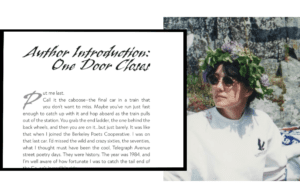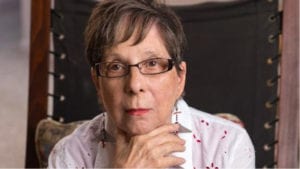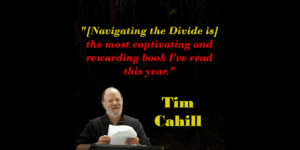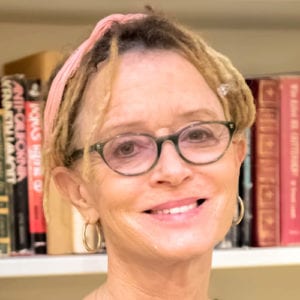Fiddlin' Around in Ireland
We were at Maggie’s, a pub on Kiernan Street in Kilkenny, and the devil was panting at Anthony Macauley's elbow, for the Irish lads were dueling it out with the musicians from Cornwall and the fiddles were smoking.
The four musicians from Cornwall had their backs to the dark plank wall. Portraits of Yeats and Shaw frowned down on them.
"I'm going to have to number these tunes," muttered the Cornish fiddler.
"There's no point; you can't count," taunted one of the Irish lads.
And so it went with the fiddles wailing, the pennywhistle squealing, the bodhrán rumbling and a Greek bouzouki busily filling in the interstices. And the smoke crawled up the walls, and the stout got so warm it was boiling over the glasses. But, it was Anthony Macauley who held us in thrall, for he had a fiend in his bow that night and sawed at his fiddle with a fury, driving the Cornish back to the sea.
Maggie's had not been an easy find. Lawrence and I had been in Ireland for almost a week; we'd arrived the Friday before, on a lovely Spring morning, to begin a journey that would take us all over the island. Lawrence, fiddle strapped to his back, had come in quest of his musical roots. I was looking for poetry.
As soon as the doors of the tiny Aer Lingus plane closed at the Edinburgh Airport, we felt the change. We moved, in a heartbeat, from the reserved silence of strangers to somebody's kitchen table. Tongues were loosened like neckties. Voices rose from every seat on the plane. One happy fellow, returning from a golf holiday in Scotland, held his Duty Free bottle of liquor aloft, exhorting his companions to try some. The flight attendant had to yell over the din. She flushed like a barmaid in training. I remembered what a friend of mine had told me about the wedding she'd orchestrated in Ireland. She'd asked her future mother-in-law if they should plan on an open bar.
"Are you mad, darlin'?" the wise Irish woman replied. "If we do that, they'll drink till there's no one standin’."
No saintly calm had descended on Dublin, either, although it was Easter weekend. It would, we were warned, be extra-busy at all of the pubs and taverns because of the holiday, and "there'd be a buzz about town."
Wanting to waste no time we quickly checked in at the Conrad, our hotel near St . Stephen’s Green, and went straight on to Grafton Street, the short musical corridor that leads to the gates of Trinity College.
Nothing buoys the spirits like a walk along Grafton Street. Gray day or sunny, it's bright with noise and laughter. Loud "hellos," babies crying, neighborly gossip, rich brogues and lilting Irish airs float up onto the breeze. Our chosen course allowed for a stroll through St. Stephen's Green. Sunlight dappled the leafy brakes. Inspired by the moment, Lawrence liberated his fiddle and sawed out a hornpipe. He was joined in his performance by a pair of amorous ducks.
On Grafton street we were immediately surrounded by music. A couple of 9 and 10-year-old boys, Donald Reagon and Paul O’Neill, were delighting passersby with smooth moves on the fiddle and concertina. College students with shaved heads played sitars. Old men played jazz. A guitarist somewhere was plucking out George Harrison tunes and singing, "Here comes the sun, little darlin' here comes the sun."
On that musical street there was only one poet—a threadbare character who, for a pound or a punt (Irish pound) or nothing at all, would recite a poem by a poet of one’s choosing. I selected Yeats and was honored with “The Fiddler of Dooney”:
"When I play on my fiddle in Dooney, Folk dance like a wave of the sea . . ."
and then, because I was such an avid listener, with the "Song of Wandering Angus," and finally with the poet's own creation—a poem he wrote for his barber. A crowd had gathered by the time he completed the medley which he finished in such a histrionic frenzy that he drove his audience away. I gave him a pound for his efforts.
Of course, we toured Trinity College, walking amid the ancient tomes in the Long Room, paying artistic homage to the Book of Kells, an illuminated manuscript of stunning beauty. We had tea at the National Museum after inspecting the lovely woolen tam-o’-shanters at Cleo on Kildare Street and browsed an exhibit on Neolithic Ireland, marveling over neck torques and collars of dazzling gold. On a tip, we went to Foley's that evening, squeezing ourselves into the bar downstairs after dinner along with the rest of the Saturday night crowd to hear the Freewheelers, a group of traditional Irish musicians.
This was to be our pattern for the trip—up early to sight-see, out late at the pubs. It wasn't long before the poetry of the countryside and the lilting, turning, double-stop music of our ramblings blurred into one long song.
Down through the Wicklow Mountains we went, on roads that hugged the Irish Sea, through Arklow and Wexford, then to Waterford and up to Tipperary and Cashel. We hiked into dells and over knolls, hopped stone walls, ducked blackberry bramble, wandered through roofless castles and around churchyards remarkable with Celtic stone crosses. The crosses seem the perfect symbol of Irish spirit and passion—a crucifix haloed by a bold, pagan sun. In my mind's eye, I see our journey around the island’s perimeter as a pattern like crewelwork on linen —a green line bordered in bright yellow gorse, clover-leafing into the country’s heart. Then we found Kilkenny and Maggie’s and Mick and the Kilkenny people, and our musical journey began in earnest.
It was Frank Salmon of Essaness Music who told us of Maggie's. There are 96 pubs in Kilkenny, and many of them alternate nights of traditional music in a nicely cooperative fashion. It was Wednesday, so things were happening at Maggie's. Pub activity commences late and ends early the next day. We crossed the street to Maggie's at around 9:00 p.m. Ordering beers, we settled back in chairs positioned on the perimeter of an imaginary half-circle
The pub started to fill up. In walked the guitar and the bodrhán. Each of them ordered a pint. The banjo came next, then a violin. Another fiddle entered, and everyone turned to stare. Then, in came the bouzouki. The bouzouki sat next to us and placed his drink on our table. Once the Irish musicians had settled into their chairs in the half-circle facing the Cornish strangers, the showdown began.
They played for two hours, non-stop, the Guinness flowing in the same manner as the music. Then, around midnight, Tommy Lanahan—head thrown back, eyes closed— roared his way through a dirgeful ballad about Irish farmers plagued by the British, and we all stood up and sang the Irish National Anthem.
The bouzouki player’s name was Mick Coogan. A large man with extra short hair and gold rings in his ear, he shared the names of his favorite musical haunts.
"Oh, you'll have to go to De Barra’s; that's in Clonakilty. And go to Doolin too, out near Dingle, to a place called McGann’s. O'Flaherty's is in Dingle. Tell 'em you know the Kilkenny people. Tell 'em 'hello' from Mick Coogan."
We asked Mick about Kinsale, which had also been recommended.
"Not far from Clonakilty," he said. "Oh, it's fine music there, as well."
With Mick’s help we plotted a course that would take us from Waterford all the way up the west coast to Derry.
De Barra's in Clonakilty in county Cork was a matchbox of a place with stone walls, plank wainscoting and mustard brown paint. On one wall, framed by several yellowing posters, was a beautiful blue Gibson Firebird guitar. The rafters were crammed with old instruments. The guys at the bar looked like permanent fixtures, and the clock on the wall had stopped on some long-ago hour. Maybe because it was early in the day or because snow was falling outside and everyone inside seemed tired and slow, De Barra's seemed like a ghost pub to us.
In Kinsale, Lawrence performed at the Shanakee with a group called Natural Gas. He used a band member's fiddle, with strings so close to the neck that he barely felt them. After his first number, a low rumble rose from the crowd. The entire audience was clapping and stomping and chanting a single request.
"Old Black Joe, Old Black Joe," they commanded. It turned out they were taking line dancing just down the street. They were dancing to "Old Black Joe."
From Kinsale we went to Blarney and Killarney and eventually on to Dingle, a magical town on Dingle Bay. Dingle is the home of O'Flaherty's, another of the pubs recommended by Mick, and nearby Doolin is the home of McGann's. There was plenty to do and see in Dingle, but Doolin, as we'd been warned, was smaller than the stop on a pennywhistle. We were through it before we even knew we'd arrived.
"I think that was Doolin, Lawrence," I observed as we raced past the few wooden buildings.
"Impossible," Lawrence assured me.
I was to be proved right, but not soon enough, for the sun was setting and backtracking, we were caught in the Doolin rush hour—twenty or so cows, tanks on full, trotting along, hogging the road ahead. Behind us, an Irish police car fell into the queue, rounding out our procession nicely.
When we finally got to Doolin we really needed a beer. So did everyone else it seemed, for there wasn't a man without a pint on the table before him except one, and he was only a few feet away.
"Look, Lawrence," I said, pointing to the bright orange drink. It was the same drink I’d seen Mick drinking before he performed. "That fellow is a musician."
"What makes you say that?" Lawrence asked.
"Well, he's the only one in here not drinking," I theorized, "that's because he's got to perform."
"Excuse me," Lawrence introduced himself, “you are a musician, aren’t you?"
It turned out that he was. His name was Owen O’Neill. He played the bouzouki, and he was a friend of Mick’s.
“Oh, yes, Mick Coogan,” he laughed, “I taught him all he knows.”
That night Lawrence played along with Owen and the other local musicians in a session in another whistlestop town called Lisdoonvarna, at a pub called the Royal Spa. The next day, too early for our stout-headed good, we drove north.
We were in Yeats country—counties Galway, Mayo and Sligo. Music and poetry seemed to flow from the landscape around us. We visited Coole Park, home of Yeats’ patron, Lady Augusta Gregory, and one of the poet’s favorite retreats. There we found the source of his inspiration in the hazel wood and the waters adjacent. “I went into the hazel wood, because a fire was in my head ...” We were staying in farmhouse bed and breakfasts. Lawrence, practicing like a madman, fiddled in every parlor, treating our various hosts to his music. They in turn treated us to everything fine in their larders. We were full, we thought, when we crossed the border into Northern Ireland to touch base with the large O’Kane family in Limavady.
In Limavady generations of O’Kanes greeted us like long lost kin. They took us all over the north coast —to Derry, Antrim, the Bushmills Distillery, to Dunluce Castle and to the Giant’s Causeway where we could see the coast of Scotland shimmering on the horizon. Lawrence’s music was as big a hit in the north as it had been in the south. The O’Kanes persuaded him to bring his fiddle with him one evening. They had a friend whose name was Ann who also played the fiddle. But Ann hadn’t touched the fiddle in months. Her husband had died in an accident a few months before. She was expecting a baby. She had withdrawn into her sorrow. Wise in the way of the spirit, the O’Kanes had a plan.
That night at the family’s favorite watering hole, Lawrence entertained our group with waltzes and reels. He poured his heart into hornpipes and jigs. Exhausted, he finally put his instrument down. Elderly Mrs. O’Kane ordered vodka. The pub filled up with warmth and music and a hearty camaraderie. And in the midst of the chaos a marvelous thing happened. Of course the O’Kanes had expected it would.
As our spirits rose and our group became louder, the gaiety in the room became such a force that not even Ann could resist it. Reaching over the table, a song most assuredly forming in her mind, she picked up Lawrence’s fiddle and played.
Fiddlin’ Around in Ireland has appeared previously in the San Francisco Examiner/Chronicle Sunday Magazine and in Travelers’ Tales 365 Travel.
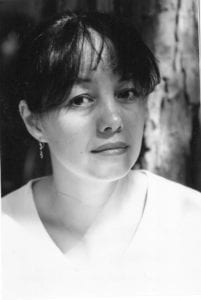
Linda Watanabe McFerrin has been traveling since she was two and writing about it since she was six. A poet, travel writer, novelist, and contributor to numerous journals, newspapers, magazines, anthologies and online publications including The San Francisco Chronicle, The Washington Post, Modern Bride, Travelers' Tales, Salon.com, and Women.com; she is the author of two poetry collections, the editor of the fourth edition of Best Places Northern California from Sasquatch Books and a contributor and original publishing partner in the award-winning Wild Writing Women: Stories of World Travel. She is a winner of the Katherine Anne Porter Prize for Fiction; her work has also appeared in Wild Places, In Search of Adventure, and American Fiction. She is the author of the novel, Namako: Sea Cucumber and the short story collection, The Hand of Buddha.
More from Linda Watanabe McFerrin
- « Previous
- 1
- 2
- 3
- 4
- Next »
